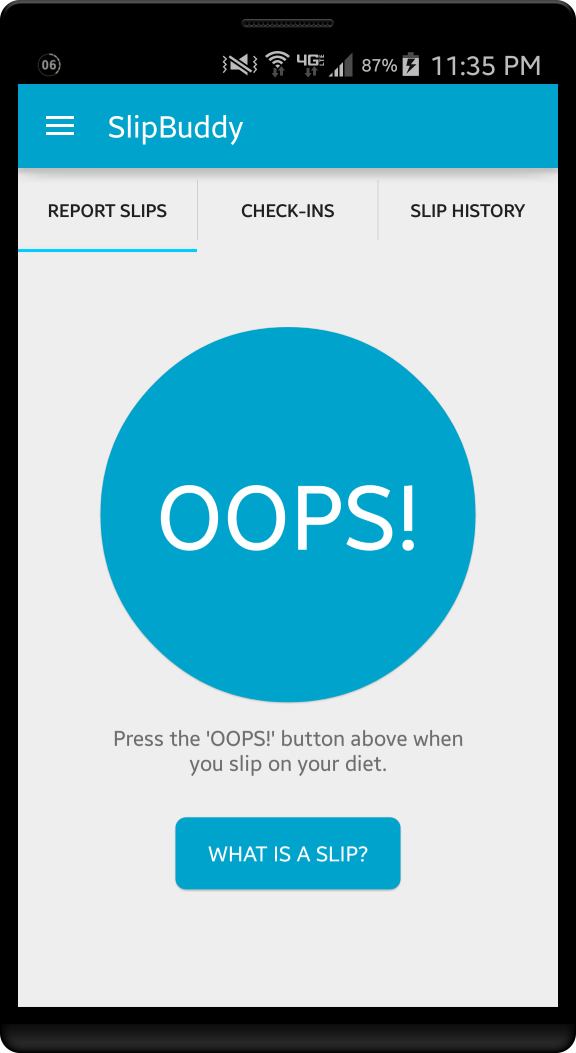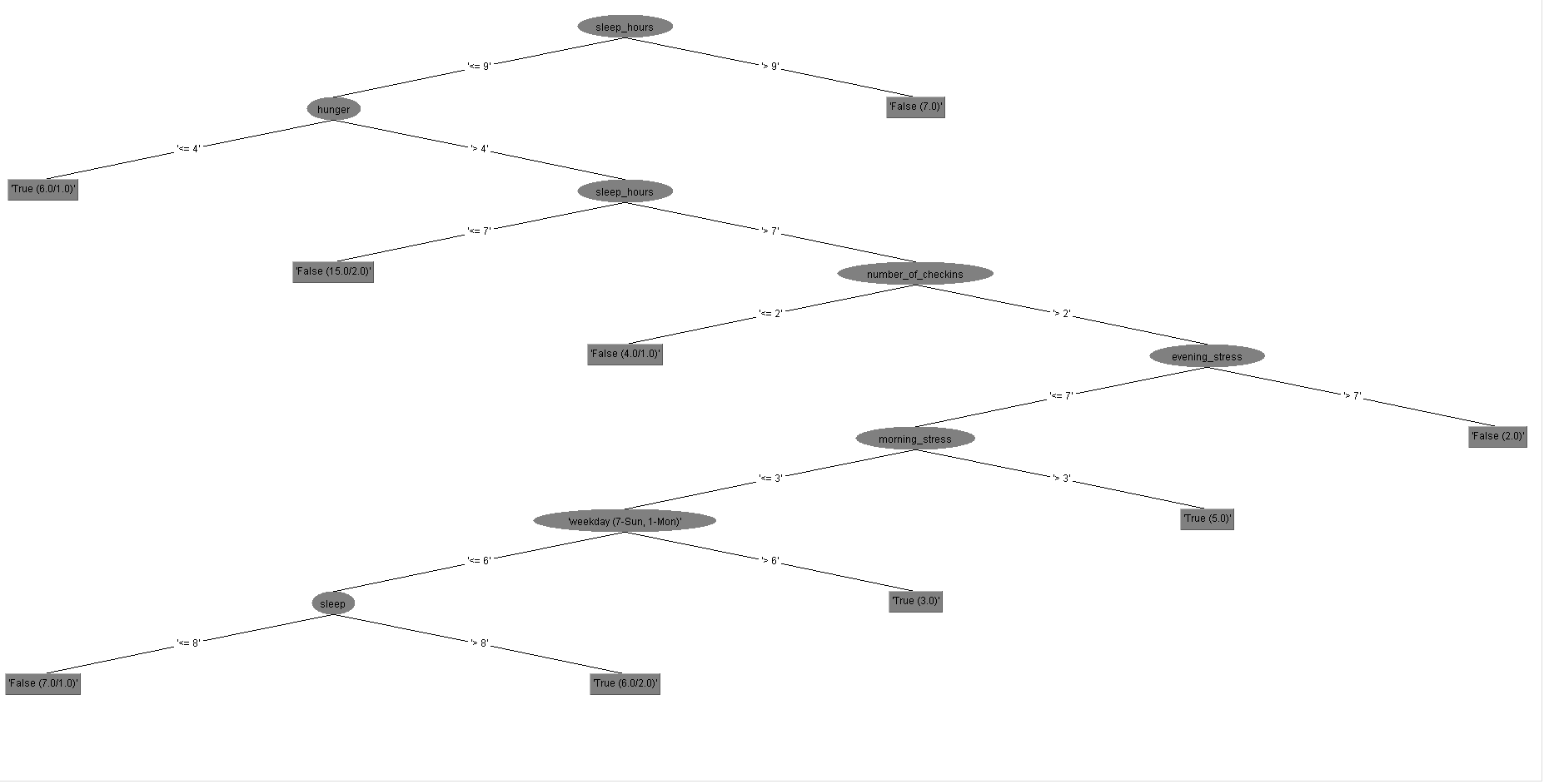Overeating Intervention Project
According to reports from the National Institutes of Health, obesity is the second leading cause of preventable death in the United States, and as such, weight loss therapies are a serious area of research. One of the most promising advances in weight loss techniques is behavior therapy. In addition to adjustments in food intake and physical activity, strategies including self-monitoring, stress management, and stimulus control are important parts of losing weight. Unlike dietary restrictions and exercise regimens, however, one's behavior is a constantly changing environment that must be watched in order to keep regular.
A key part of the solution could be technology. Constantly being aware of your eating habits and stress levels is hard to do, and poor understanding of oneself can lead to overeating. Instead, that awareness could be managed by a patient's smart phone instead. A phone is capable of recording health status in real time and providing individualized advice for managing eating habits.
This project will develop an Android smart phone application called SlipBuddy that records a patient's overeating episodes, along with other factors such as stress level and location, to create a personalized report of the patient's behavior in order to intervene in any future overeating.
Developing SlipBuddy will be done in two major phases. First, there is Data Collection, where pilot users' overeating history, stress level, and other data will be collected. This data will need to be collected as easily and painlessly as possible, and must have enough information to be useful. Second, the data will be interpreted to Predict Patient Overeating Behavior. These predicted behaviors will be used to intervene before the user will overeat, which will provide meaningful feedback to the user about their habits and prevent them from overeating in the future.

